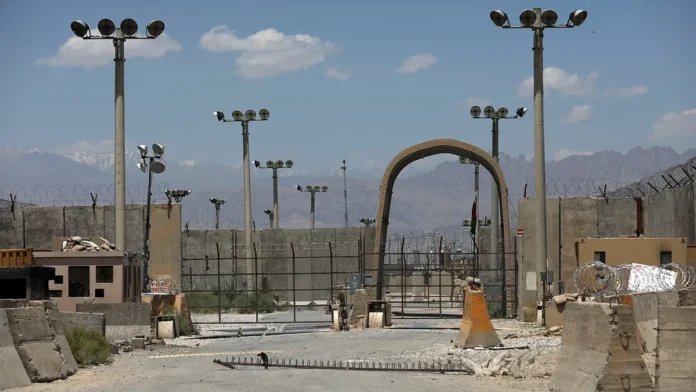In a surprising diplomatic stance, India has voiced criticism of former U.S. President Donald Trump’s reported proposal to take control of Afghanistan’s Bagram Air Base, aligning its position with that of the Taliban, Pakistan, and China, all of whom have opposed the idea. The development reflects India’s concern over renewed external military involvement in the region, particularly in the sensitive post-withdrawal security landscape of Afghanistan.
Indian officials have emphasized that Afghanistan’s sovereignty and stability must be respected and that any unilateral move to re-establish foreign military control over its territory would undermine regional peace efforts. “The future of Afghanistan should be determined by its people, not by external powers seeking strategic leverage,” a senior government source said, echoing the sentiment expressed by several regional players.
The Bagram Air Base, once the centerpiece of U.S. military operations in Afghanistan, has become a symbol of foreign intervention for many nations in the region. Trump’s reported plan to reassert control over the facility has drawn sharp reactions, particularly from countries wary of a renewed American footprint in Central and South Asia.
India’s response signals a nuanced approach to regional diplomacy. While traditionally aligned with the U.S. on defense and strategic matters, New Delhi has increasingly sought to assert its independent stance on issues involving Afghanistan. Analysts suggest that India’s position reflects its long-term interest in regional stability and the prevention of another cycle of external interference that could destabilize South Asia.
China and Pakistan, both having their own stakes in Afghanistan’s political landscape, have also condemned Trump’s remarks, arguing that the move could reignite tensions and disrupt ongoing humanitarian efforts. The Taliban leadership, too, warned against any foreign attempt to control Afghan soil, asserting that it would be treated as an act of aggression.
For India, the position underscores a broader shift toward regional autonomy and multilateral diplomacy. By opposing the reoccupation of Bagram, New Delhi appears intent on promoting a collective regional framework for Afghanistan’s stability rather than endorsing unilateral actions by external powers.
This development marks a rare moment where India’s stance aligns with those of its regional rivals, underscoring the complexity of post-U.S. withdrawal geopolitics in Afghanistan and the evolving contours of India’s foreign policy priorities in its neighborhood.



